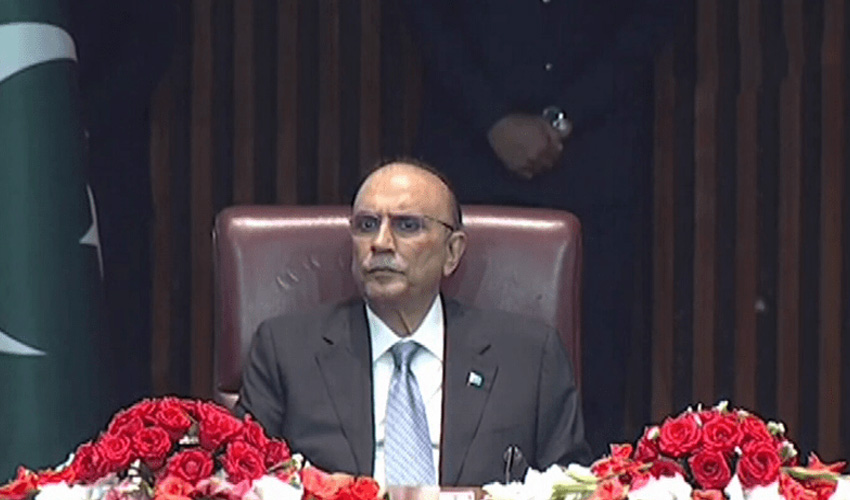Joint sitting of Parliament: President Zardari calls for political dialogue amid Opp protest
Opposition parties demand the release of former premier and PTI founder
Opposition parties demand the release of former premier and PTI founder
Authorities condemn attack, labels it a barbaric act of terrorism
Ehd-e-Wafa actress condemns the propagation of negativity for personal gain
Muzaffarabad Deputy Commissioner Nadeem Janjua says 18 people are injured in the accident as well
Bondi Junction stabbing: Pakistani security guard injured in Westfield attack to be offered residency
Dollar reserves held by commercial banks in Pakistan decreased by $824 million
No loss of life or property was reported due to the earthquake
President Ruto convenes emergency security council
Decision to call off the match came from the umpires as the relentless rain showed no signs of abating
Opposition parties demand the release of former premier and PTI founder
The pilgrims must leave the Kingdom by the deadline
Several citizens visiting the zoo are also saddened by Madhubala's condition
Governor says govt is hopeful of signing IMF's long-term program in the future
India's six-week-long elections are scheduled in seven phases
The airport is working hard with its response teams and service partners to restore normal operations
Dollar reserves held by commercial banks in Pakistan decreased by $824 million
Decision to call off the match came from the umpires as the relentless rain showed no signs of abating
Ehd-e-Wafa actress condemns the propagation of negativity for personal gain
Among most downloaded applications were popular platforms such as TikTok, Ludo, Facebook
Bondi Junction stabbing: Pakistani security guard injured in Westfield attack to be offered residency
Study discovers that sound coming from a disturbed plant could be heard over a meter away
Economic ups and downs can be managed through 'Charter of Economy'

